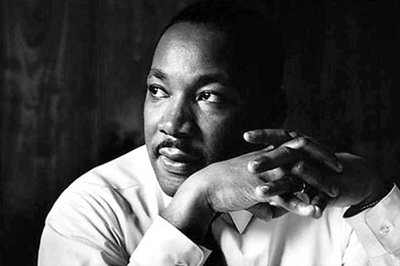In this PBS Student Reporting Labs video, Oregon teens explore the confusing messages about climate change and talk to scientists about the consequences of unchecked human actions on the natural environment.
Subjects
Science (Biology, Environmental Science, Ecology, Chemistry, Earth Science, Oceanography), Social Studies, Art
Grades
7-12
Introduction
Problems associated with warming waters and suburban development bring the expression “
think globally, act locally”
home with the very real impact on the commercially important sock-eye salmon of the Pacific Northwest. This student-produced video not only serves as a springboard for discussion of global environmental problems and how every human has a stake in the future of our planet, but it introduces students to the National Oceanic and Atmospheric Administration's research and resources.
Overview
Getting to Know NOAA
From what we decide to wear each morning to what’s for dinner, over 300 million American lives are touched daily by the science-based work of the National Oceanic and Atmospheric Administration (NOAA). Few know that the NOAA Corps is the nation’s seventh uniformed service serving our country! Combining a commissioned officer's career with a scientific mission, these men and women are a critical part of the web of science and management within NOAA.
Materials
Computers with Internet access
9 sheets of easel paper or newsprint
Magic Markers or Sharpies
Procedure
Warm Up Activity
Watch the PBS Student Reporting Labs video
The US Coast Guard teaches students about climate change and salmon spawning
(6:35), produced by students from the Health and Science School in Beaverton, Oregon. The following key terms are mentioned in the video that can be used for a discussion related to their context in the documentary.
-
NOAA
-
EPA
-
Climate change
-
Native plants
-
Warm Blob
-
Salmon migration
-
Riparian zone
Main Activity
Divide into groups of two or three students to explore the nine key focus areas at the National Oceanic and Atmospheric Administration (
NOAA
). Each group should explore a different focus area. These focus areas are:
-
Weather
-
Climate
-
Oceans & Coasts
-
Fisheries
-
Satellites
-
Research
-
Marine & Aviation
-
Charting
-
Sanctuaries
Each focus area on NOAA’s site will include additional sections to explore. These sections are called Latest Features, Must See and Our Scientists, Experts, and Partners. Click on links in each area and take notes to compile with your group that informs the class on your specific focus area. Use a sheet of newsprint or large poster size paper and markers to write your notes to present orally to the class. Include on your display:
-
Name of the focus area
-
Mission of the focus area
-
What discoveries and new knowledge are presented on their site
-
How they communicate data and information for others to use
-
How is that knowledge used to protect people and the environment
-
How the focus area relates to our community
Tape your paper to the board or wall and orally present your findings to the class. At the end of the discussion, there should be a more in-depth understanding of this government agency and its critical mission across our globe and locally.
Extension Activities
The following link is a summary of NOAA programs based in and focused on your state or territory. The entries are listed by state, then region, then by congressional districts and cities or towns. How does NOAA work within your state? What environmental issues are they concerned with?
http://www.legislative.noaa.gov/NIYS/
While on the NOAA website, check out the opportunities for students including internships and scholarships. Are you familiar with the National Ocean Science Bowl? Visit
NOSB
to find out how to form a team at your school.
-
Salmon Life Cycle: Just keep swimming, just keep swimming…
Salmon is the common name for several species of fish in the family Salmonidae. Native to tributaries of the North Atlantic and Pacific Ocean, many have been introduced to non-native environments. Salmon are also farmed in many parts of the world. Unique adaptations allow many species of salmon born in freshwater to migrate to saltwater then return to fresh water to spawn. Tracking studies have shown that the salmon’s olfactory memory allows them to return years later to spawn in the location where they hatched. Learn more about the life cycle of the salmon, distribution and ecology.
Additional reference: Idaho Public Television has several lesson plans related to salmon.
http://idahoptv.org/sciencetrek/topics/salmon/teachers.cfm
http://idahoptv.org/sciencetrek/topics/salmon/activity3.cfm
-
Macroinvertebrates: Stoneflies, Caddisflies and May flies, Oh MY!
An important part of the salmon life cycle is the ability to feed on aquatic insects or macroinvertebrates. Macroinvertebrates are an important food source for many young fish that serve as food for commercially important species. Macroinvertebrates are also important indicators of stream health and productivity. Visit the
Izaak Walton League of America
and download forms and instructions for Save Our Streams (SOS) to find out if your local stream is safe to swim and play in. Biological, chemical and physical forms are available. Collect macroinvertebrates in a local stream. Bring back the samples to identify in the classroom. In addition, you can solve a bug ID mystery with a fun and free app. The Aqua Bugs app helps you identify bugs while stream monitoring with a few simple questions and photos. Give it a try!
http://www.iwla.org/conservation/water/clean-water-your-right-to-know
-
Salmon and Trout in the Classroom: An eggcellent opportunity!
Visit the US Fish and Wildlife Service and discover a popular program to raise salmon and trout in schools around the country. Through the Salmon-in-the-Classroom or Trout in the Classroom curriculum, students rear salmon or trout (a relative). Eggs are obtained from a hatchery and are raised in tanks in the classroom, giving students the ability to observe and learn about the fish as they grow. Schools can “adopt" streams in local communities. This provides further opportunities to explore water quality, habitat and overall watershed health. Fish and stream units combine as students actually release their fish into local streams. Check out the following sites:
https://www.fws.gov/gorgefish/springcreek/education.html
http://www.troutintheclassroom.org/
-
Wild vs Farmed Salmon: Making sense of the aquaculture debate
Salmon are an important fish because of taste as well their high content of Omega-3 fatty acids. This nutrient is important in reducing cardiovascular disease as well as promoting healthy brain development and vision in infants. Because of their economic and ecologic importance, salmon are intensely farmed. What is the controversy?
Look in online and scientific publications to investigate environmental concerns, contamination and nutritional value to make sense of the salmon aquaculture debate.
Gyotaku originated in Japan as a way for fishermen to record the size and species of fish they had caught at sea. From museum and gallery exhibits to wall decorations or magazine and journal entries, gyotaku continues as a popular form of art as well as record keeping. Gyotaku is also an excellent way to learn the external anatomy of a fish. Following the fish printing, fish can be dissected in class to better understand their internal anatomy.
For directions visit
http://fishandboat.com/education/catalog/fishprints.pdf
Standards NSES
Science as Inquiry (A) 9-12
Students should develop
-
Abilities necessary to do scientific inquiry
-
Understanding about scientific inquiry
Life Science (C)
Students should develop an understanding of
-
Interdependence of organisms
Science and Technology (E)
Students should develop
-
Abilities of technological design
-
Understandings about science and technology
Science in Personal and Social Perspectives (F)
Students should develop understanding of
-
Personal and community health
-
Natural resources
-
Environmental quality
-
Natural and human induced hazards
-
Science and technology in local, national, and global challenges
Science as a human endeavor (G)
-
Nature of science
-
History of science
National Standards For Arts Education
Visual Art
-
Standard 1: Understanding and applying media, techniques, and processes
-
Standard 4: Understanding the visual arts in relation to history and cultures
-
Standard 5: Reflecting upon and assessing the characteristics and merits of their work and the work of others
Lisa Lyle Wu teaches marine biology and is Lab Director for Oceanography & Geophysical Systems at Thomas Jefferson High School for Science and Technology in Alexandria, VA. As a science writer, she develops curricular materials for Discovery Channel, Washington Post’s Newspaper In Education, and her own autonomous underwater glider program, as well as exhibit materials for the Smithsonian’s National Museum of Natural History. Wu is a recent Board Member for the Virginia Museum of Natural History. She thrives in coastal maritime life, residing in Arlington Virginia with her husband and son.
Sign up to receive NewsHour Classroom's ready-to-go Daily News Lessons each morning
here
.





